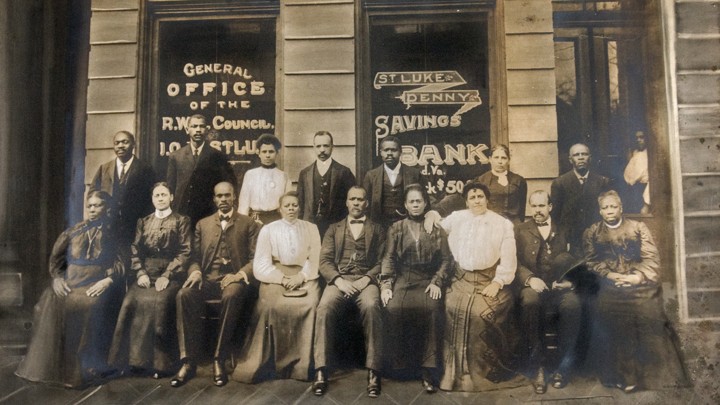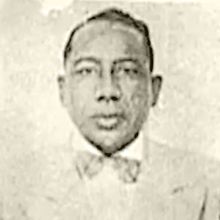

Happy Friday POU! We continue to read about Ottuwa Gurley and Black Wall Street.
In 1918, OW Gurley was charged with bribery by two women in Greenwood. According to the complaint, Gurley took rings from the two black women “to keep them out of jail.”. Gurley, who was a Tulsa sheriff’s deputy and charged with policing Greenwood, was rumored to have regularly demanded bribes from people accused of crimes in Greenwood in exchange for not arresting them. Gurley escaped charges and was able to keep his badge.
In 1919, three black men were arrested on suspicion of shooting a white ironworker. The men were transported to Tulsa County jail, across the train tracks from Greenwood – and put into a cell together.
Word traveled through the grapevine that a white mob planned to take the men from the jail and lynch them. Within hours a posse of black men were organized. More than two dozen black men carrying revolvers and rifles marched across the train tracks to the jail and barged in. They demanded to see the prisoners and got into a shouting match with the police. As the confrontation escalated, men on both sides began to move their fingers towards the triggers of their guns.
As the tension reached a breaking point, Gurley sauntered through the door. His hair was now gray and he wore glasses. He was a rich man and wore expensive suits with a sheriff’s star pinned to his breast and a pistol at his side. He walked up to the police chief and the two walked away conversing in whispers. A few moments later a deal had been brokered. Gurley gave assurances that the men wouldn’t be harmed and the police would allow the group to check on the prisoners if they left immediately thereafter. A delegation of the men from the group escorted by an officer went back to check on the men. A few minutes later they came back and reported the men were being treated well and they went back to Greenwood.

This sent chills through white Tulsa. The independence and strength of Greenwood had been reluctantly tolerated as long as Gurley could keep the blacks under control, but this “armed invasion” as it was later called, set off alarms. The negroes were getting out of their place.
A few months later, a white man was accused of assaulting a black woman on a trolley in downtown Tulsa. Gurley obtained a warrant but was forbidden from arresting him. Tulsa’s sheriff, Williard McCullough, reportedly ripped the warrant from Gurley’s hands, stating “he would never allow a black man to serve a warrant on a white man in Tulsa.” In response, Gurley handed McCullough his badge and resigned.
By 1921, Gurley was the richest and most powerful man in Greenwood. He was landlord to almost half the town’s residents and shopkeepers. With more than 100 properties in Greenwood, he was worth between $500,000 and $1 million ($6.8 million and $13.6 million). His net worth could only be guessed as Gurley kept his own money across the tracks in the white banks of downtown Tulsa. His hotel was one of the busiest in the district.
JB Stradford, Greenwood’s other founding father, was growing more popular. In 1918, he helped organize an armed group to turn back a lynch mob in nearby Bristow, Oklahoma. In Greenwood, Stradford’s more militant approach to civil rights became increasingly popular. In 1920 with the help of AJ Smitherman, he brought WEB DuBois to Greenwood. Gurley didn’t protest, in fact, he put him up in his hotel.
Du Bois gave several lectures to the residents, focusing on the need for blacks to become economically self-reliant and push back against lynching. He spoke of the burgeoning artistic renaissance in Harlem, New York; advocated for African Americans to organize for their rights and urged the people of Greenwood to protect their own people from lynching.

Dick Rowland
On a Rainy Memorial Day in 1921, Dick Rowland entered the Drexel Building in Tulsa to use the only colored bathroom on the black. Rowland was 19 years old and worked shining shoes at a stand outside the building. In Greenwood, where he had grown up and still resided, he was known for being ostentatious , showing his billfold and wearing an earring with the nickname “Diamond Dick”.
The elevator operator was a 17 year old white girl named Sarah Page. The door closed and then a scream came out. When the doors opened, Sarah ran away. A white clerk who had heard her screams called the police. When the police arrived, they didn’t make much of the incident. They questioned Rowland and sent him home. Per the police captain, it all just seemed like a misunderstanding.
The next day newspaper boys greeted people in the streets, pushing papers with the headlines “Negro assaults white girl!” The details of the story were mostly fabricated, but nevertheless came the calls for Rowland to be locked up or worse. Later that day, the same officers that had let Rowland go, went to his house and took him away. He was put into a cell in the courthouse.
Once Rowland was in jail, talk of lynching him spread among white men in Tulsa. The next day, the Tulsa Tribune ran and editorial encouraging lynching titled “To Lynch A Negro Tonight.”
Late that afternoon, OW Gurley arrived at the courthouse to see the police chief. The police chief assured Gurley there wouldn’t be any lynching as long as Gurley could keep the black residents of Greenwood away from the courthouse.
The police chief hoped that if they could prevent a racial standoff, bloodshed could be avoided. However, a few hours later a crowd gathered on the courthouse steps with white men demanding that Dick Rowland be brought out. The police chief told the mob “you might as well go home because no one is going to get the negro.”
Inside, Sarah Page was being questioned by officers. She said the incident might have been a mistake and she hesitated on pressing any charges. The white mob outside grew angrier and angrier as the sexual assault allegation fell apart. Rowland’s cell was on the top floor and could only be accessed by elevator. The police chief had 5 deputies stand guard.
Meanwhile, when Gurley returned to Greenwood, he found men in a state of agitation over fears Rowland would be lynched. Gurley tried to reassure the men that the police chief would protect Rowland. “You’re a damn liar!” a man named Anderson shouted at Gurley. Gurley snapped back at Anderson “Fellow you ought to be in jail right now!”.
Anderson pulled his pistol from his hip and aimed it at Gurley. An older lawyer named Spears jumped in between them and talked Anderson into putting the gun away.
Down the street, a lawyer named BC Franklin heard the fracas and rushed into the street. He found 2 WWI veterans, one black and one white, exciting the crowd with talk of war. “We need to bomb one of the buildings” they shouted. Franklin told the crowd that such action would lead to the destruction of Greenwood and possibly the deaths of everyone there. After his speech, the crowd dispersed.
